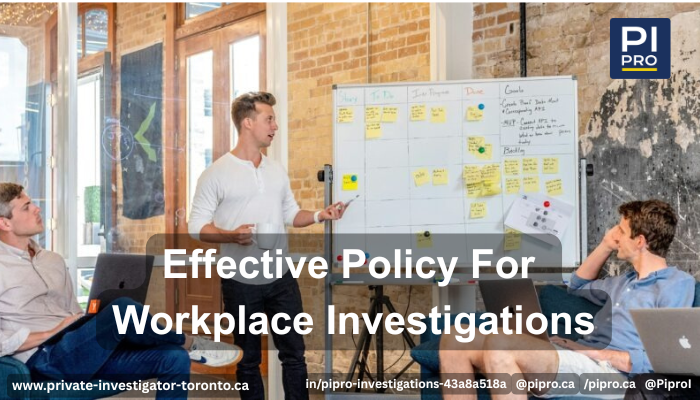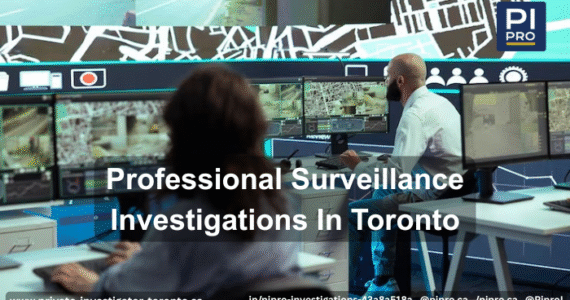
Effective Policy for Workplace Investigations
The organization requires a properly organized
workplace investigation policy for managing employee misconduct reports and workplace fraud assessments as well as workplace violation complaints. Fairness alongside compliance and protection of both employees and employers becomes possible through a clear policy that also strengthens ethical conduct at work.
This document addresses workplace investigation principles alongside the methods which produce the best outcomes when conducting HR investigations.
What Is a Workplace Investigation?
An employer uses workplace investigations as official processes to investigate employee misconduct together with workplace fraud and policy breaches. Human resources investigation services along with internal compliance teams oversee workplace investigations to maintain proper impartiality during the process.
The investigation of workplace matters deals with major legal aspects together with minor organization-related issues. Poor management of workplace situations leads to legal actions, damaged reputation and the formation of a destructive work environment. Strategic workplace investigation policies reduce organizational security hazards and create organized work areas which promote ethical employee conduct.
Why Is a Workplace Investigation Policy Important?
A comprehensive workplace investigation policy serves multiple advantages to organizations.
Ensures Fairness and Transparency
A structured policy guarantees equal and consistent treatment of all staff members throughout investigation processes. The policy establishes transparent processes for making decisions along with procedures that prevent investigators from showing bias throughout investigations.
Legal Compliance
A clear investigation policy documentation helps organizations maintain legal compliance with labor laws industrial regulations along with corporate policies therefore lowering the chance of legal consequences.
Protects Employees and Employers
Employees remain protected through harassment schemes and discrimination cases and retaliation along with employers experiencing reduced legal exposure through use of an investigated procedure framework.
Encourages Reporting
Workers report unethical activities more frequently when they trust their organization to seriously investigate misconduct with due professional attention.
Reduces Workplace Disruptions
A disciplined investigation approach limits workplace interruptions since it effectively resolves workplace conflicts.
Key Elements of a Workplace Investigation Policy
1. Defining Workplace Misconduct
Every workplace investigation policy needs specific definitions of inappropriate workplace behavior. The workplace investigation policy must outline which employee conduct constitutes misconduct including harassment along with discrimination as well as workplace violence and insubordination and unethical behavior. The investigation framework should include all policy violations together with breaches of confidentiality and misuse of company assets. The precise definition of every issue allows employees to comprehend prohibited behaviors and the related disciplinary measures.
2. Reporting and Complaint Procedures
Workplace investigation policies need an openly disclosed complaint system to function properly. Workers need several avenues for reporting misconduct starting from meetings with HR personnel through phone-based whistleblowing services and straight-up reporting routes to executive leaders. Employees must determine within what time duration they need to submit complaints while the necessary registration materials to back claims must be outlined.
3. Investigation Process and Responsibilities
To execute workplace investigations a specific framework needs to be implemented and must include various necessary procedures. Organizations must select investigators through internal selection of their HR personnel or senior management or by choosing external HR investigation services. An investigation starts by collecting evidence and policy documentation combined with identifying multiple witnesses.
4. Employee Rights and Protections
Workers should receive their essential rights throughout investigations since they need both privacy protections and the opportunity to reveal their version of events. The workplace investigation policy must protect every employee from retaliation when they take part in any stage of the investigation. This applies to both complainants and witnesses as well as accused parties.
5. Consequences and Corrective Actions
The investigation results demand suitable corrective measures to be implemented. Arising disciplinary actions undergo a scale that ranges from verbal warnings to written reprimands to employment suspension to job termination according to the misconduct seriousness. Legal procedures need to start when workplace fraud happens. The professional reputation of employees who suffered wrongful accusations needs immediate reinstatement together with corrective actions to restore their professional status.
Best Practices for Conducting a Workplace Investigation
1. Act Promptly and Objectively
A workplace investigation needs to happen immediately to achieve satisfactory results. Constructed investigations beyond timely start dates can damage existing evidence which may cause legal hazards to appear. The beginning of investigations must occur immediately after allegations emerge through neutral investigator selection to maintain impartiality. The process requires no encounters of conflict so that both credibility and fairness remain intact.
2. Maintain Confidentiality
All workplace investigations require strict confidentiality standards to be established by employers. Unlawful information release weakens investigative integrity while simultaneously harming involved reputations. Workers who participate in the investigation represent the only personnel who must receive access to protected data. All parties demanding protection need organizations to maintain strict confidentiality measures.
3. Document Every Step
Documentation is essential to achieve both complete transparencies together with full compliance with investigation practices. Every collected piece of data concerning complaints and witness statements and evidence and interviews should be properly documented by investigators. A final investigation report needs to include summary of findings together with defined action recommendations.
4. Utilize Third-Party Experts When Necessary
The investigation of workplace fraud and major misconduct needs expert involvement from outside sources. The use of independent HR investigators leads to neutral evaluation processes that fulfill all necessary regulations. Access outside expertise through independent companies offering specific knowledge about forensic investigation and legal requirements after establishing their employment.
5. Implementation of corrective actions
The end of investigative procedures requires implementing corrective measures with appropriate follow-up checks on involved parties. Employers need to design training programs and policy modifications together with appropriate disciplinary actions based on requirements. Employee follow-up measures work to restore trust between affected staff while preventing recurrence of such situations. Workplace investigation policies need regular review to maintain their applicability and suitability for dealing with newly emerging work-related problems.
Conclusion
Workplace investigation policy needs to have strong organizational structure to handle employee misconduct and workplace fraud and HR compliance issues. A workplace remains ethical and lawful when organizations implement defined policies that use transparency and appropriate disciplinary procedures.
Regular sessions about ethics along with employee rights and workplace investigation training create environments based on accountability and focused on trust. Companies which focus on fair and unbiased investigations both protect their workforce members along with safeguarding their positive reputation. Businesses that want trained HR investigation services should seek advice from qualified investigators to conduct both effective and compliant workplace investigations.
Having a private investigator ensures your evidence is gathered legally so you will have a strong foundation if legal matters like divorce or custody cases emerge. The services of an expert cheating spouse investigator in Mississauga will help you discover the truth while bringing you back to a state of serenity.
Interested in more or choose the best private detective in Toronto? Call us now and speak with our specialists to know how our virtual investigation services can help.
Private investigator Brampton, Private investigator Oakville, Private investigator Pickering, Private investigator skip trace, Workplace investigation, corporate investigation services, Private investigator Mississauga, Private investigator Markham, Private investigator Toronto




